
WHEN Jawaharlal Nehru became prime minister, there was euphoria across India on gaining independence, but it was also a time of crisis. A long and devastating colonial subjugation was ending. The world was emerging from the ravages of World War II. India was racked by poverty, illiteracy and ill-health. Access to roads and electricity was inadequate. The world witnessed a Cold War, militarisation and the formation of blocs.
A comparison with what has happened in Pakistan helps us to understand the difficulties faced by a newly independent nation. Both belong to the same stock, got independence simultaneously and had similar history and structures of governance. The two nations, which started with similar circums tances, have had divergent development paths, principally bec ause of the vision and the nature of their political leadership.
The leadership in India asserted its independence—it stayed out of the emerging great power blocs and provided the vision of the Non-Aligned Movement to the emerging free nations. In contrast, Pakistan joined the Western bloc, militarised and could not break the shackles of feudalism. It allowed the military to dominate the nation and went for theocracy and not secularism. Democracy did not have a chance to flourish because the political leadership was weak.
Historical narratives are always tricky since they require interpreting the past with present-day lenses. For instance, during the height of the Mughal rule, with Akbar at the helm, there was no electricity, no cars or airplanes or telephones.
From today’s perspective, the country was obviously underdeveloped. But is that a fair judgement? Several factors need to be taken into account such as the availability of technology, resources and the prevailing social situation.
This story is from the {{IssueName}} edition of {{MagazineName}}.
Start your 7-day Magzter GOLD free trial to access thousands of curated premium stories, and 9,000+ magazines and newspapers.
Already a subscriber ? Sign In
This story is from the {{IssueName}} edition of {{MagazineName}}.
Start your 7-day Magzter GOLD free trial to access thousands of curated premium stories, and 9,000+ magazines and newspapers.
Already a subscriber? Sign In

Trump's White House 'Waapsi'
Donald Trump's victory in the US presidential election may very well mean an end to democracy in the near future

IMT Ghaziabad hosted its Annual Convocation Ceremony for the Class of 2024
Shri Suresh Narayanan, Chairman Managing Director of Nestlé India Limited, congratulated and motivated graduates at IMT Ghaziabad's Convocation 2024
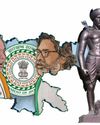
Identity and 'Infiltrators'
The Jharkhand Assembly election has emerged as a high-stakes political contest, with the battle for power intensifying between key players in the state.
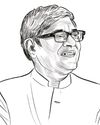
Beyond Deadlines
Bibek Debroy could engage with even those who were not aligned with his politics or economics

Portraying Absence
Exhibits at a group art show in Kolkata examine existence in the absence

Of Rivers, Jungles and Mountains
In Adivasi poetry, everything breathes, everything is alive and nothing is inferior to humans
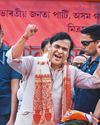
Hemant Versus Himanta
Himanta Biswa Sarma brings his hate bandwagon to Jharkhand to rattle Hemant Soren’s tribal identity politics
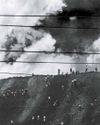
A Smouldering Wasteland
As Jharkhand goes to the polls, people living in and around Jharia coalfield have just one request for the administration—a life free from smoke, fear and danger for their children
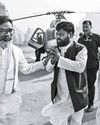
Search for a Narrative
By demanding a separate Sarna Code for the tribals, Hemant Soren has offered the larger issue of tribal identity before the voters
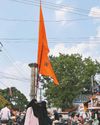
The Historic Bonhomie
While the BJP Is trying to invoke the trope of Bangladeshi infiltrators”, the ground reality paints a different picture pertaining to the historical significance of Muslim-Adivasi camaraderie